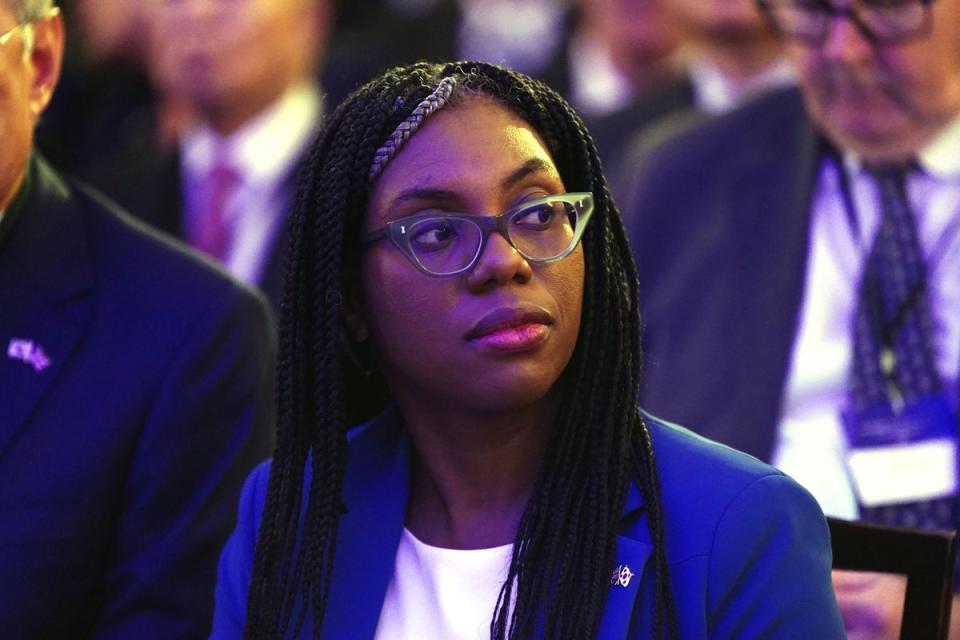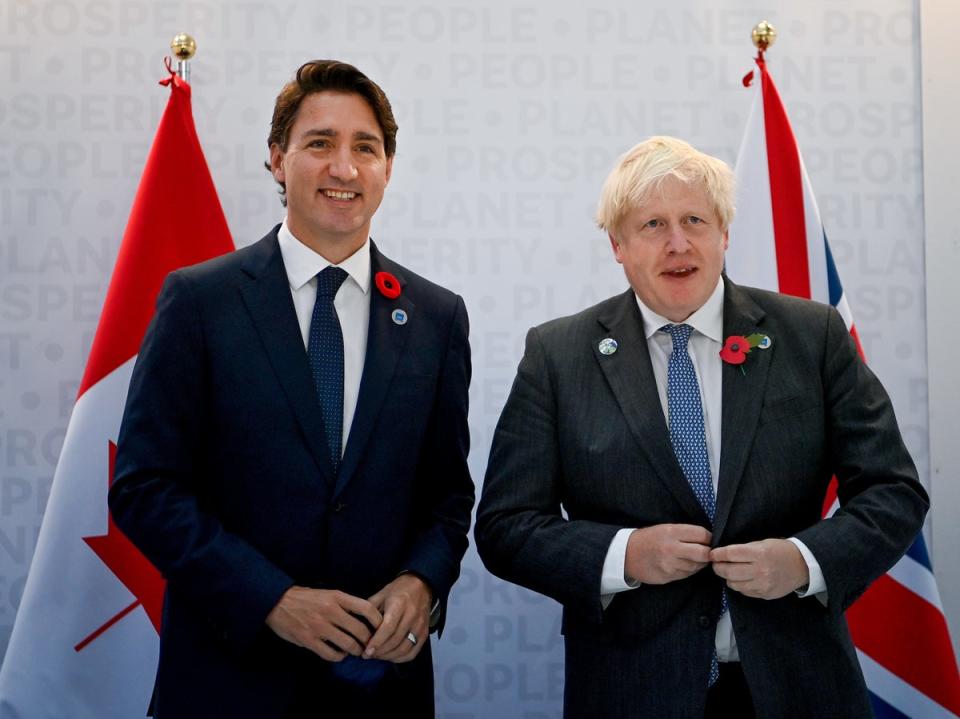New Brexit catastrophe as trade deal with Canada called off
Rishi Sunak’s government has been hit by a new Brexit catastrophe, as talks aimed at reaching a trade deal with Canada collapsed in acrimony.
It had been hoped that a free trade agreement with Britain’s close Commonwealth ally would have been among the very easiest to strike after Brexit.
The Conservatives had boasted that post-Brexit Britain would be free to sign new economic pacts all over the world after quitting the EU.
Then-PM Boris Johnson pledged to sign a “bespoke” trade deal with Justin Trudeau’s government to boost the economy after agreeing to temporary rollover arrangements in 2020.
But two years on from the launch of formal talks, the Sunak government has called off negotiations with the Canadians due to a fall-out over beef and cheese quotas.
The row erupted over Canada’s pushing for Britain to relax its ban on hormone-treated beef, which its producers say effectively shuts them out of the British market.
Canada’s government has been facing pressure from both its beef industry and domestic cheesemakers – also pushing to get better access to the UK market.

But a spokeswoman for Canada’s trade minister, Mary Ng, said she was “disappointed” at the talks had now fallen apart – saying as much to trade secretary Kemi Badenoch.
Ms Ng’s spokeswoman told the BBC: “Their decision to continue to maintain market access barriers for our agriculture industry and unwillingness to reach a mutual agreement has only stalled negotiations.”
Ms Ng added on X, formerly known as Twitter, that the Canadian “government will never agree to a deal that isn’t good for our workers, farmers and businesses”.
A UK government source said Canada appeared to have “lost sight of the bigger picture – the British and Canadian businesses who do £26bn worth of trade a year and the people they employ”.
The source added: “If Canada come back to the table with a serious offer and desire to make progress we’re all ears, but in the meantime we’re going to focus on other trade deals that deliver for UK businesses.”
The two nations have been negotiating for the last two years, with trade continuing under the arrangements brokered when the UK was a member of the EU.
Negotiations began on a new agreement in March 2022. The previous agreement had allowed the UK to continue to sell cars and cheese in the North American nation without Canada charging import tax.

In November 2020, then-PM Mr Johnson claimed a new, post-Brexit deal with Canada would “go even further in meeting the needs of our economy”.
Hopes were raised that a deal could finally be done this year when Ms Badenoch worked closely with her Canadian counterpart in talks that saw the UK join its ally in the Comprehensive and Progressive Agreement for Trans-Pacific Partnership (CPTPP).
However, Minette Batters, president of the Nation Farmers’ Union (NFU) of England and Wales, praised the Sunak government for having “stuck to its line and not given way”.
She told BBC Radio 4’s Today programme it was essential that hormone-treated beef is not allowed into the country.
“It is a relief for farmers. This has been going on for a long time and it is about enhancing the trading relationship between the UK and Canada.”
The farming leader said agricultural products tended to be “the first thing to be discussed and the last thing to be agreed – I am pleased the government has stuck to its line and not given way”.
Ms Batters added: “Canada has played hardball for a long time. It was always going to come to a crunch point as to who was going to capitulate.”
The fresh Brexit blow comes after a top group of MPs wanted that Britons heading to Europe could face waits of 14 hours or more at border control because of looming travel rule changes.
And business chiefs have warned that a fresh wave of Brexit red tape coming at the end of January and April is already creating an “existential” crisis for Britain’s fresh food and flower firms.
“We reserve the right to pause negotiations with any country if progress is not being made,” a UK government spokesperson said. “We remain open to restarting talks with Canada in the future to build a stronger trading relationship that benefits businesses and consumers on both sides of the Atlantic.”


